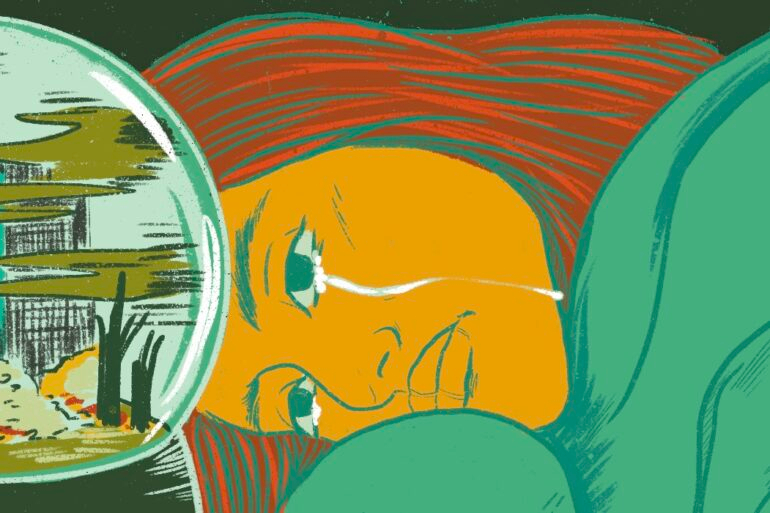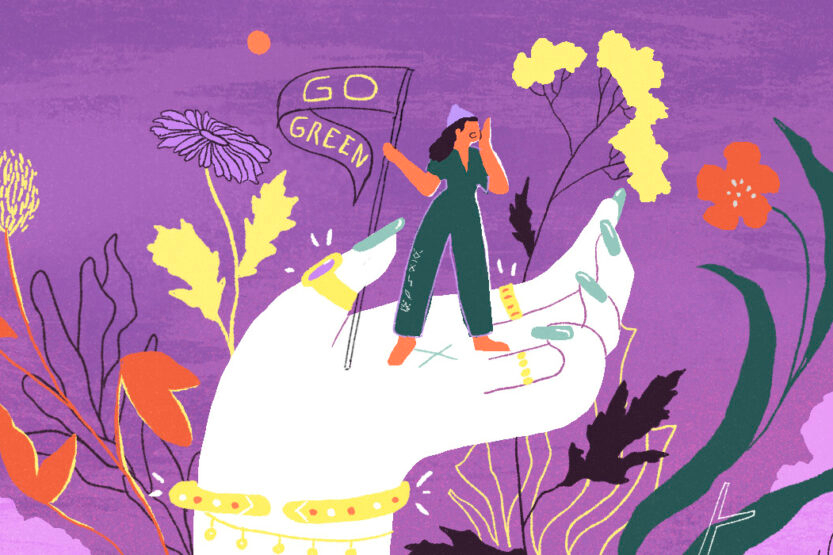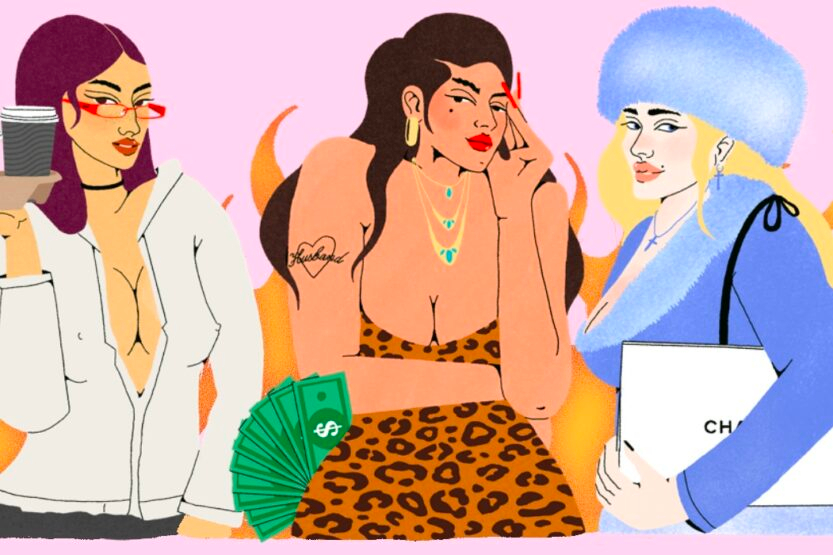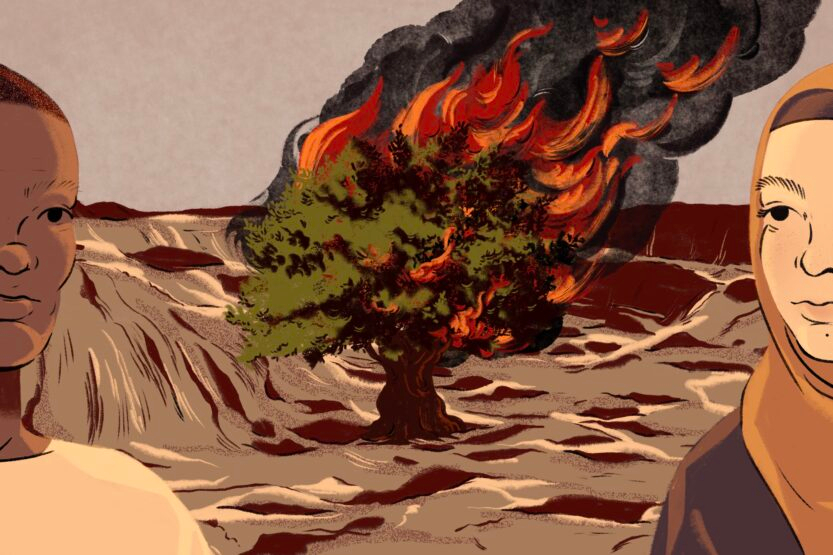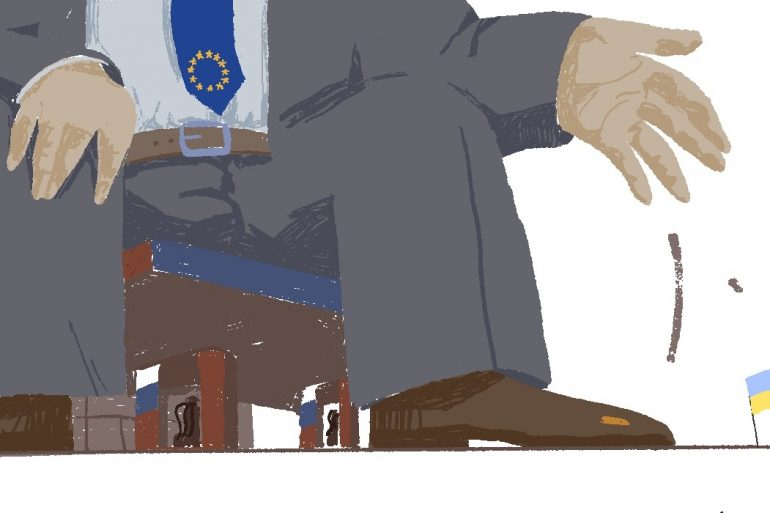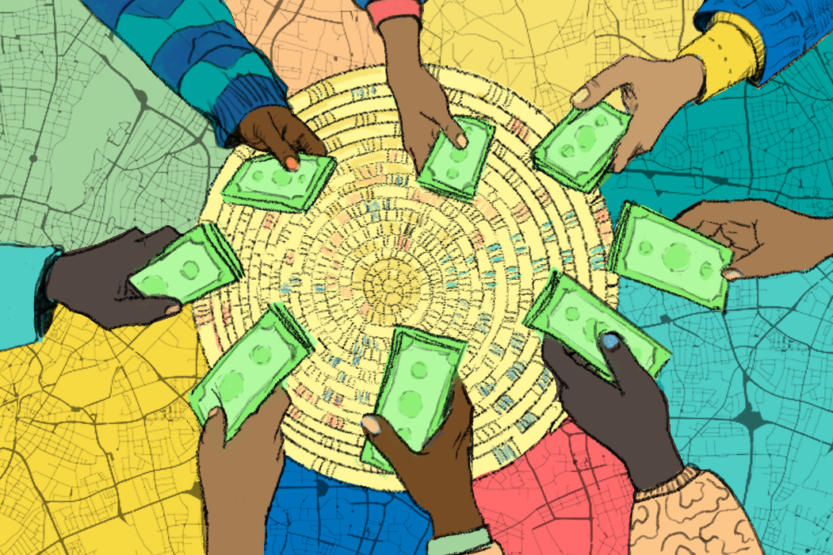Governments and institutions in the Global North have found myriad ways to demonstrate their full-fledged support for Israel, amidst the ongoing devastation of Gaza, including punishing those who dare voice any form of solidarity for the Palestinian people. Cancelling events and stopping funding for cultural centres has also become commonplace when organisers or artists involved do not sufficiently mirror state support for Israel.
This violence towards and punishment of Palestinian support is most apparent in Germany, which has recently taken to self-sabotaging its art scene for this cause.
How to get blacklisted
This phenomenon has been described as the new McCarthyism – political persecution based on a perceived slight, designed to reduce the range of publicly acceptable opinions.
Support for the Palestinian cause, or merely criticism of Israel’s campaign of bombardment and genocide on the Gazan population since the Hamas attacks of 7 October, can get you fired, blacklisted or censored at work. This is especially true in western countries – whose leaders, but not necessarily its citizens, are more likely to support the Israeli violence against the Palestinians.
You don’t need to look far for examples. Michael Eisen, the editor of scientific journal eLife, was terminated from his job for retweeting an article by satirical publication The Onion with the headline: “Dying Gazans Criticized for Not Using Last Words to Condemn Hamas.” Hollywood agent Maha Dakhil was forced to resign from her agency’s board for reposting a statement which called Israel’s war a genocide. U.S-based advocacy organisation Palestine Legal received a surge in requests for legal support since October, with many people being investigated by their HR departments or having job offers rescinded for similar social media posts.
The discrimination against pro-Palestine voices has not just been limited to the workplace. Harvard students who signed a letter stating Israel’s role in the destabilisation of the region have since been doxxed and threatened, in what the students consider a campaign of intimidation. Social media apps have suppressed Palestinian accounts on their platforms. A surge of Islamophobic attacks, particularly in the US, has ranged from instances of harassment and bullying to the shooting of three Palestinian students in Vermont.
It is sadly unsurprising that American, British and European ruling class support and enabling of the violence in Gaza is reflected in the actions of individuals and companies who feel emboldened to discriminate on the same basis.
That’s how McCarthyism worked – the anti-Communist moral panic was top-down persecution, as political repression more broadly always has been. The method of encouraging discrimination against suspected leftists is comparable to the widespread anti-Muslim sentiments of the 2000s during the so-called War on Terror and aftermath of US invasions of Afghanistan and Iraq, which has frightening echoes in the anti-Palestinian atmosphere prevalent today.
Even more profound is the effect of this suppression on free expression in the realm of arts and culture, especially in Germany.
The curious case of Germany
Germany’s relationship with Israel has typically been one of unwavering support, tied to Germany’s historical guilt over perpetuating the Holocaust. For this, the state is extremely vigilant about creeping antisemitism, an undoubtedly valid and real fear.
But in its quest to undo the horrors of its own past, the German state has chosen to ban expressions of solidarity with the Palestinian people and offer enthusiastic approval to the hard-right Netanyahu government of Israel and its disproportionate aggression against Gaza.
Germany conflating the state of Israel as a political entity with the Jewish identity, and therefore its brandishing of criticism of Israel as a form of antisemitism, has led it to dark and discriminatory places.
As writer Lukas Hermsmeier put it in his New York Times piece, this approach has created “an atmosphere where advocacy for Palestinian rights or a cease-fire in Gaza is seen as suspect, running afoul of the state-mandated position.”
The way this phenomenon has manifested is not merely through the suppression of pro-Palestinian rallies – although there is no shortage of that – but an attack on the very culture of resistance and promotion of alternative voices. This has taken many forms but usually involves the banning or cancellation of allegedly controversial events, which often centre migrant experiences.
Frankfurt Book Fair made a splash when it called off an awards ceremony for Palestine-born novelist Adania Shibli in the aftermath of the violence in Israel and Palestine. An open letter of support for Shibli by other authors condemned the decision and accused the book fair of “shutting down” Palestinian voices.
Acts like this were not done in isolation, and can be viewed through the lens of a cultural decimation in the name of support for Israel, and by extension, opposition to Palestine.
This dynamic was even more nakedly exposed when Oyoun, a BIPOC-led intersectional cultural centre, received notice in November 2023 that its state funding would be rescinded for refusing to cancel an event by the Jewish-led peace activist group Jewish Voice for a Just Peace in the Middle East.
Culture as controversy
Since 2020, Oyoun has inhabited a former brewery in the Neukölln area of Berlin, a working-class and diverse neighbourhood rapidly gentrifying in recent years, and received annual funding from the Berlin Senate. It holds an especially important place in Berlin’s scene, since it primarily focuses on queer*feminist, migrant and decolonial perspectives. I spoke to artistic director Louna Sbou about how Oyoun’s funding was abruptly stopped.
“From 2020, we thought, ‘Now we can finally execute a concept without certain limitations,’” Louna begins. “Except, it seems, when it comes to organising or hosting events with Palestinian voices.”
In summer 2021, Oyoun was already being threatened with the pulling of funding for planning to host an event with Jewish Voice. The justification by the Berlin Senate for this ask was that the organisation is pro-BDS, the global tactic of using boycotts, divestments and sanctions to apply economic pressure to Israel. Oyoun did cancel the event, and later four years’ of funding was agreed upon, though this intervention by the Senate against Oyoun’s chosen guests hung over the team.
“In April 2022, we sent an email to the Senate team stating very clearly that we would not tolerate this censorship – that we were unwilling to have them force us to disinvite Jewish voices or Palestinian groups which are not forbidden organisations,” Louna continues. “We also linked to a federal court order which declared it unconstitutional to prohibit BDS discussions taking place in publicly funded spaces. They never responded.”
Subscribe to shado's weekly newsletter
Exclusive event news, job and creative opportunities, first access to tickets and – just in case you missed them – our picks of the week, from inside shado and out.

After this, Oyoun held a panel discussion about the repression of Palestinian voices, which the Senate also wanted cancelled. This event, however, went ahead and did not receive any backlash. Oyoun had ongoing communication with the State Secretary about antisemitism and suggested bringing a member of the Jewish community to join the discussion but this never came to fruition.
In April 2023, the Berlin Senate changed hands, from being in left-leaning control to a coalition between the centre-left SPD and centre-right CDU, meaning new representatives for culture. Meeting with the new State Secretary, Oyoun explained its position to hold an event with Jewish Voice celebrating its 20th anniversary, and why they felt it was so important to provide them with a platform. The Senate disagreed, deeming it too “politically charged.” It was becoming apparent that artistic freedom in Germany has its limitations.
After the events of 7 October, Jewish Voice wanted to change their celebration at Oyoun to instead be a vigil where all attendees could grieve together, respecting the Jewish mourning ritual Shiva. Oyoun agreed.
“Demonstrations were forbidden for both Palestinian and Jewish leftist or queer communities at this point,” Louna further explains. “So we thought it was especially important that they would have a space where people can come together to collectively exchange.”
A letter from the Senate urged them to cancel the event, but Oyoun pushed ahead. It was around this time that German MEP Susanna Kahlefeld, of the supposedly leftwing Green Party, called for the funding of Oyoun to stop.
After the event took place, the Senate let Oyoun know they were reviewing their funding.
“That scared us. We were all trying to find ways of understanding what was happening. We thought legally the only thing they could do was review us then publicly distance themselves from our work, since we already had our four-year funding approved.”
Cancellation by livestream
On 20 November, the cultural committee held a meeting where the Senator announced the shutdown of Oyoun at the end of 2023. Oyoun only found out about this via livestream, never received anything in writing, and has been refused offers of mediation on the matter. The centre has since crowdfunded to start a lawsuit to fight the closure of their space. It raised €72,000 in just five days.
“It’s one thing to witness the cancellation of events because people are scared. It’s another thing entirely to cancel funding for a space of this size with 32 members of the team to be completely deprived of income with only weeks’ notice,” adds Louna.
Senator for Culture Joe Chialo of the CDU suggested that being against “hidden forms of antisemitism” was reason enough to shut Oyoun down. Louna’s response to this serious accusation pointed out that Oyoun has a code of conduct against all racism, plus “methods and procedures to prevent antisemitism from being reproduced.”
The scariest part about Oyoun losing its funding is how it feels like the beginning of something, not the end. The wider repercussions for German culture and arts has already become apparent. Oyoun identified this political decision as part of a larger trend: “the setting of a precedent that all state-funded institutions may now fear…impacting the very essence of artistic freedom and expression.”
It does not bode well for any other radical arts centre if, even in Berlin, which rightly or wrongly prides itself on being progressive and diverse, a migrant-led organisation can have its funding withdrawn so suddenly. What’s to stop more right-leaning cities across Germany from being emboldened to do the same?
Any publicly-funded cultural centre will look at the Oyoun example and be afraid to step out of line on this particular issue, lest they face the same fate. This will lead to less risks being taken in terms of artistic expression, and more restrictions on the parameters of social debate. Louna disclosed that some spaces have privately reached out to her to say they support Oyoun but cannot risk doing so publicly.
The reaction to this announcement by the German mainstream press has been predictably dire, but the backing from Oyoun’s supporters, as well as the popularity of Oyoun’s extensive programme, shows that, despite this blow, there is a high demand for inclusive spaces for marginalised communities.
“There definitely is a huge number of solidarity movements around Oyoun. It is not just what Oyoun embodies, but the domino effect which might happen afterwards,” Louna tells me.
A scene in decline?
The solidarity however has not been across the board, and more mainstream German institutions have been accused of overt or covert complicity in the state’s response to the genocide in Gaza, leading to a movement to boycott culture in Berlin and beyond.
I spoke to Berlin resident Hana about her experiences. She originally bought a ticket to attend Lost – You Go Slavia, a series of talks, exhibitions and plays around the dissolution of Yugoslavia, showing at the Maxim Gorki Theatre. But after 7 October, the theatre decided to postpone the showing of the Yael Ronen play The Situation as part of this programme, stating, “War is a great simplifier. The attack on Israel by the terrorist organisation Hamas puts us on Israel’s side”.
This statement led to the withdrawal of several participants of the programme, including three authors who branded the theatre’s words as “one-sided”. They further stated “We believe today, of all days, institutions such as the Gorki Theatre should focus their efforts not on silencing Palestinian viewpoints but on bringing people together to discuss history, critique policy and work towards building a world that can hold the whole of humanity equitably together.”
Hana explains, “While usually German institutions were the one leading cancellations, in this case, the authors didn’t want to be part of the programme anymore. One of them was the withdrawal of the exhibition Four Faces of Omarska. They stated that we cannot talk about war crimes from Yugoslavia if we cannot talk about what is happening in Gaza.”
She continues, “Some other cancellations followed. That provoked something in me and many of my friends. We decided to boycott a lot of cultural institutions for now. Many of them, like Gorki Theatre, issued deeply problematic statements, while others remained cowardly silent. I’ve been a regular goer to cultural events for years, but I’ve realised that so many institutions are censoring Palestinian voices, or even conversations about the situation in Gaza.”
From this, one can get a sense of a void at the heart of Germany’s cultural core. Events and exhibitions are either being cancelled by the theatres or museums due to a perceived pro-Palestinian bias in the content, or the performers, artists or writers pull out themselves once the institution’s abhorrent stance in this conflict is made abundantly clear and is affecting the programme.
On top of this, locals are moving towards withdrawing their attendance at any of these places altogether. It is not a stretch to see how this cycle of boycotting and cancellations, alongside the state punishing truly radical spaces like Oyoun, will weaken and stunt the German arts scene, narrowing the chance for anything subversive or brave to shine through.
As Hana ponders, “Now whenever I see an event, I’m debating with myself if I should actually go. Honestly, I’ve never been to so few exhibitions and events, as I simply cannot believe that one can accept the world without Palestinians.”
Germany’s narrow future
This is not just happening in Germany, nor without pushback. Many in Berlin’s creative community have taken to the streets to have their voices heard where the cultural institutions have failed. On 26 November, the group Artists for Palestine UK conducted a sit-in at Tate London to demand an end to the silent complicity of galleries and museums when artists are blacklisted for speaking out in favour of peace in Gaza. There is even now a global call for international arts workers to strike from German cultural institutions. This proves the cultural phenomenon has a global presence, and resistance.
But Germany’s political consensus in favour of Israel is seemingly unmatched. Its restrictive stance is creating fallout amongst its citizens, and ties into a worrying forecast of the nation’s future. The state is cracking down on Palestinian solidarity using authoritarian methods of surveillance and repression. These developments neatly compliment the rise of the far-right in Germany more broadly.
Indeed, the radical right-wing party AfD has enjoyed a recent resurgence, even gaining its first elected mayor in Saxony in December 2023. But when the supposedly sensible parties such as the CDU and SPD have made anti-refugee remarks and plans to speed up mass deportations, Germany’s prospects as a ‘liberal democracy’ seems limited.
Louna explains the difference as she sees it between Germany and other parts of the global north which have seen massive pro-Palestine and ceasefire protests, “A million demonstrating in London, in Washington. But here the police can record you, they have your images, can find out who you are, whether you have status and your passport can be revoked. This is very scary.”
Suspicion and surveillance of Palestinians in particular has been stark. Berlin has for instance banned the wearing of keffiyeh scarves and use of ‘Free Palestine’ stickers in schools. The over-policing and crackdowns on pro-Palestine rallies in Germany is having the effect of stifling opinions and creating an atmosphere of uncertainty about what is even allowed.
The Israeli response to the attacks of 7 October has unleashed a wave of western justifications and mental gymnastics for how Israel has an inalienable right to brutalise the population of Gaza.
In German society, the worrying trend of punishing perceived pro-Palestinian voices has come in the form of degrading and harming its own arts and culture scene to uphold this unwavering loyalty. This very basis lays the foundation for even more unscrupulous actors – the far-right – to further restrict free speech, police expression and undermine marginalised voices, leading to higher chances of anti-immigration violence and hate crimes, including antisemitism and islamophobia.
This is the reality of Germany not fully reckoning with its past, and using its own history as a weapon to shut down alternative viewpoints. It is fuel for the right, and they are winning out of it.
The arts scene in Germany is suffering, and those in power are actively enabling this to produce a society more ripe for paranoia, narrow thinking, and co-option by the xenophobic and racist right.
As Louna summarises, “The tension is intense. We are all constantly burnt out. There’s a heaviness of silence – silence is also a very German phenomenon. It is reflective of the times which are waiting for us.”
What can you do?
- Sign the petition to save Oyoun: Berlin’s BIPOC-run Cultural Centre, and donate to the fundraiser if you can to help Oyoun fight these legal costs and protect artistic freedom in Germany.
- Listen to this message of support by Oyoun advisory board member Rabbi Armin Langer
- Follow and engage with Artists for Palestine UK
- Read How the Israel-Palestine conflict is tearing the art world apart in The Independent
- If you are a cultural worker, join STRIKE Germany to pressure German institutions to uphold artistic freedom
- Learn about Jewish Voice for Peace
- Watch Oyoun’s conversation with Naomi Klein, Beth Miller and Sara Grossman – Israel, Palestine, Germany and the Doppelgänger Effect: On transnational solidarity, free speech and colonialism
- Donate to Medical Aid for Palestine or read shado’s resources on Palestine on its front page





